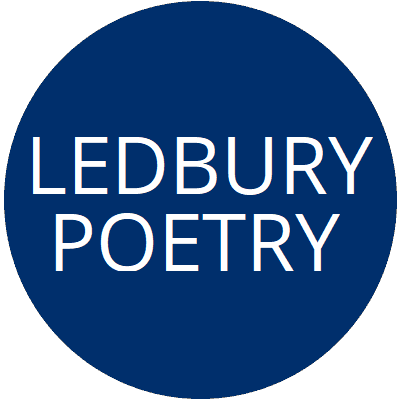Air Poems in the Key of Voice is a unique and innovative work of translation and performance: “The piece will offer hearing audiences something of the rich, immersive, spine-tingling experience conjured by sign language poetry.” This event is happening on Saturday 8 July at 12 noon – 1pm at the Market Theatre. Half price tickets are available if you have brought a ticket for another event at the Festival! Get your tickets now!
Chloe Garner interviews Air Poems in the Key of Voice creator Kyra Pollitt:
What can the audience expect from this event?
There’s no nudity at this event, so don’t be misled by the promotional photo. But there will be poetry that is made of the body – sign language poetry. The event is really about introducing sign language poetry to Ledbury audiences, explaining what it is, showing some, and discussing why it’s a fascinating form of British poetry. And this is the first time a sign language poet has performed at the Festival.
Can you tell me how sign language poetry differs from poetry written or performed by hearing/spoken word poets?
Without giving away too much of the plot, and just to whet your appetite, I can tell you that in sign language poetry you can achieve much of the usual ‘play with words’ ( in this case signs), but you can also zoom in and zoom out, play with scale and tempo in a really physical way, and create quite exact images for your ‘readers’. Of course, there are also limitations – sign language poetry can’t appear on a page – and that’s why I prefer to call it ‘Signart’. There’s an interesting debate to be had about where Signart sits in relation to the mainstream of British poetry.
Can you tell me more about the work of Paul Scott and why you wanted to work with his poems in particular?
Sign languages have no written form (British Sign Language is not a manual version of English, but a linguistically distinct language), so in deaf communities, poetry is used in bardic ways. It is used to record events, to tell the history of the community to itself and to express resistance in difficult times. Paul, who’ll be performing live at the event, is one of our most noted bards.
What inspired you to make what I think must be the first attempt to translate sign language poetry?
Well, this isn’t the first attempt at translating Signart, but it is borne out of frustration at the kind of translations that are commonplace. I think because deaf people are often seen simply as ‘disabled’, their communication is treated as less than a language – particularly when it comes to translation.
The translations I’ve seen and heard have often been spontaneous translations, and they are as awful as one might expect from any spontaneous translation of poetry in any language.
The real sting, though, is that if you hear a lousy translation of a Russian poem you don’t automatically assume that Russian poetry or the Russian people are inadequate.
So I’m trying a different tack. In the past I have successfully worked with professional poets- notably the Edinburgh Makar, Christine da Luca – to create parallel texts. But for this work, I’m stepping away from text altogether and trying radical translation. It’s pretty experimental, so you’ll have to come along and tell us if it works for you.
I’m inspired by interviews I conducted with deaf audiences at Signart events, when they told me what they experienced when they were watching. I’ve tried to reproduce some of those qualities for hearing audiences, so they get the same multi-sensory impact. I’m using film-poetry and sound to do that.
Can you tell me what have been the main challenges in this process and how you have responded to them?
In my research into the poetic qualities of Signart, I uncovered an overlooked pattern of rhyming in which images appear and reappear in variously inflected ways across various spatial locations throughout the pieces. When I started mapping that what emerged was a kind of medieval musical score sheet. I just took it from there..
Can you tell me why you chose to work with Victoria Punch and how her ‘vocal gestures’ create the effect you are aiming for?
I was looking for a musician to help me turn these scores into sound – the sound of Signart – when I came across Victoria. We were both doing some work at a school for deaf children. Without knowing that Victoria was musical, we started chatting about my work. Victoria ‘got it’ straight away, and when she started talking about singing as a series of ‘vocal gestures’, I knew we had to work together. So Victoria has been translating my scores into vocal gestures, and its produced something that sounds remarkably like plainsong.
Now at the event, you’ll see Paul’s body performing and hear Victoria’s body performing. And it’s all live, and in the moment, which for many years before the advent of video was a characteristic of Signart.
What is the role of film poetry in this event? What does film poetry convey to hearing audiences that reflects the experience of those who do sign?
I didn’t want to produce something that was just a visual and aural spectacle. It’s important to me that Ledbury’s audience learn something about Signart, and understand Paul’s poetry. But I wanted to avoid the restrictions of spoken and written text as much as possible. So I’ve worked with the wonderful Helen Dewbery and Chaucer Cameron, who have created film-poems that we’ll project onto and over Paul’s body. The idea is that they will illustrate the content of the poetry.
It’s the first time any of us have tried this, and we’re hoping it will be an evening to remember for all the right reasons. (As I write we’re about to head into our final rehearsals.) We’re hoping people will come along out of curiosity, have a fantastic experience and then give us their feedback. We’re certainly hoping to be a talking point, and to open a door to more sign language poetry at future Ledbury Festivals.
I hope my conversation with Kyra Pollitt captures why I think Air Poems in the Key of Voice is going to be such an amazing event at the Festival! Please do come along and support it!


